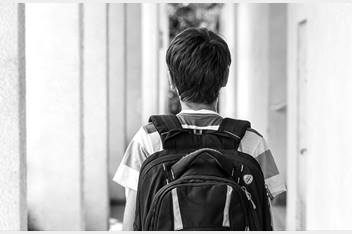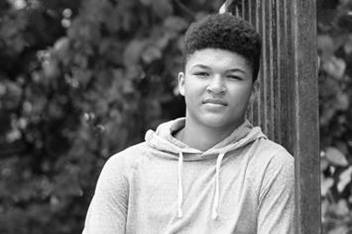Behavioral and Mental Health Care in Schools

Behavioral and mental health needs inside schools have changed over the last two decades. Once focused on disruptive classroom behaviors, there’s now a greater call for strategies to address issues like suicidality and other aspects of the current youth mental health crisis.
School-Based Behavioral Health Services at Nationwide Children’s Hospital has been on the front lines of this work for approximately 25 years. With as many as 40 master’s degree-level therapists across 63 school buildings in central Ohio, School-Based Behavioral Health Services is providing high-quality trauma-informed and culturally responsive behavioral and mental health care where young people are – at school.
The services focus on evidence-based patient- and family-centered therapeutic interventions, including psychiatric evaluations and medication management, and work in collaboration with other school-based efforts from Nationwide Children’s. For example, integrated care is provided in fifteen schools which house a Nationwide Children’s school health clinic providing primary health care and related services. Evidence-based prevention programs such as SOS: Signs of Suicide® and the PAX Good Behavior Game® are also provided.
“There are so many things that impact student success – physical health, mental health, family involvement, social influencers of health and education, issues that exist outside of the classroom that have an effect in the classroom,” says Nakeia L. Hudson, LISW-S, MBA, program manager for School-Based Behavioral Health Services. “Recognizing this impact affords us the privilege to also provide services to our students and families in their home as well as other community settings. You need layers of resources and support to help the ‘whole child.’
In 2022, School-Based Behavioral Health Services saw approximately 1,200 individual students in Columbus City Schools, Bexley City Schools, Canal Winchester Local Schools, Reynoldsburg Schools, KIPP Columbus, and Arts and College Preparatory Academy. When a new school-based health center opened at the St. Mary School this year, Behavioral Health Services was embedded there as well.
The program also has history of partnering with community organizations to provide social-emotional learning and staff development opportunities during the summer, including with Boys & Girls Club of Central Ohio, Jeffrey Mansion, St. Stephen’s Community House, and Columbus Parks and Recreation Department.
As with many of Nationwide Children’s school-based initiatives, the goal of School-Based Behavioral Health Services is to become fully integrated with the school, so that the therapists can have an impact on climate and culture, says Hudson. Therapists work collaboratively with teachers, administrators, social workers, counselors, and nurses both to identify and support at-risk students and to help school staff better understand the behavioral and mental health issues students face by providing prevention, consultation, and education services throughout the school year.
Behavioral health at school may mean something different than it did two decades ago, but Nationwide Children’s experts are working to meet the demand.
“We have the long view in mind” says Hudson. “We want to continue evolving in the ways that we help students and families, as well as school staff, so we can continue to meet them where they are.”
“There are so many things that impact student success – physical health, mental health, family involvement, social influencers of health and education, issues that exist outside of the classroom that have an effect in the classroom. Recognizing this impact affords us the privilege to also provide services to our students and families in their home as well as other community settings.”



